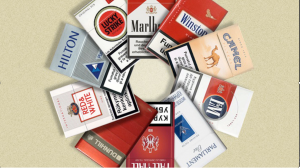Should BATs Buy More Tobacco? (Blog 4)

British American Tobacco (BAT) recently announced that it bid $47 billion dollars for 58% of Reynold American that wasn’t already under BATs control. Currently Reynold is the second largest tobacco company in the U.S. If BAT were to make this purchase it would solidify itself as the largest tobacco company in North America. This extremely large purchase made me question what BAT’s decision process on making this offer was. In class twelve we discussed Nordstrom’s expansion into having more Canadian stores and why they might do it. The three things that BAT might have heavily considered was marketing, operations, and finance.
The biggest of these three that BAT probably considered when it came to the purchase was operations; the reason being, operationally, the amount of outputs could change. But when a large producer of something buys more of the same product it usually helps with efficiency.
“BAT reckons its deal would generate $400m of annual savings”; this would be due to the fact that producing more in bulk is cheaper and more efficient. Also due to the fact that recently America became an attractive market for tobacco, BAT can also expect its inventory turnover to increase at a relatively high rate. Going off the fact that America is currently an attractive market, financially speaking, this purchase is a great option. Especially due to the fact that Reynolds owns Camel and Newport, two of the largest brands of cigarette sold in U.S. These two companies were both in the top three of sales in the U.S. in 2015. What this means for BAT is that it can grow as a company inside the U.S. somewhere that it isn’t know for having extremely good sales. Finally we have to look at marketing and how BAT is basically going to improve their businesses functionality after the expansion? One things we can expect is that the firm will put a lot of resources into improving “safe” smoking, which includes the production and sales of e-cigarettes. What’s interesting about this is only when you study all three of these points can you really get a good grasp on deciding whether purchasing a company, or expand a company.
(400)
http://infossible.com/2015/06/05/worlds-most-popular-cigarette-brands/
https://www.cdc.gov/tobacco/data_statistics/fact_sheets/economics/econ_facts/
https://www.google.ca/search?q=Reynolds+American&ie=utf-8&oe=utf-8&gws_rd=cr&ei=mYEWWOCyHJO4jwO4yqvIAQ
http://www.economist.com/news/business/21709346-huge-deal-points-broad-changes-cigarette-makers-big-tobaccos-new-ambitions


